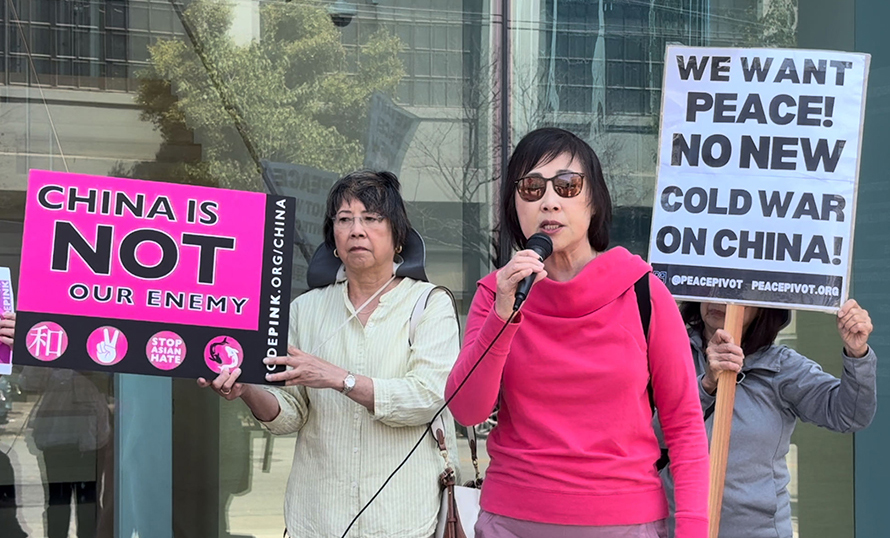
Krista Chan, a San Francisco Bay Area resident, often contemplated the striking contrast between the region's affluence and the persistence of homelessness. That led her to seek answers in the documentary Voices From the Frontline: China's War on Poverty, which is now the focal point of a censorship controversy.
"How can we learn from what they did?" Chan asked. "After watching this documentary, I can tell you it took a lot of innovative business models, anti-corruption efforts, planned relocation, (and) incredible sacrifice and hard work on the part of the Chinese people."
READ MORE: Turning vision into reality
Produced in 2019 by United States-based nonprofit corporation Public Broadcasting Service, the film — a collaboration between investment banker and China expert Robert Kuhn and Emmy-winning director Peter Getzels — documented China's methods to lift 800 million people out of extreme poverty over 40 years.
The film crew traversed China, engaging with locals for in-depth discussions and exploring bottom-up poverty-alleviation programs that played a crucial role in eradicating extreme poverty.
However, after its initial release, the documentary faced harsh criticism from anti-China politicians, who said it portrayed China in an overly positive light. Their pressure led to PBS taking down the film after a single showing.
The censorship has sparked concerns among peace and human rights activists.
On Saturday, several groups including CodePink, Pivot to Peace, the ANSWER Coalition and Veterans for Peace rallied in front of PBS affiliate KQED in San Francisco, demanding the airing of the documentary.
Last month, CodePink delivered a petition with more than 5,800 signatures to PBS' national headquarters in Virginia, demanding the airing of the documentary. Similar petitions have been delivered to local PBS stations across the country, including in Chicago, Boston, Los Angeles and New York.
PBS didn't respond to a request for comment from China Daily.
Chan, who is also a volunteer with the "China is not our enemy" campaign of CodePink, said,"I have seen this documentary, and have also traveled to China... witnessing firsthand how China has modernized and uplifted the poorest."
She cited the World Bank's 2022 report, which revealed that China contributed "close to three quarters of the global reduction" in extreme poverty over the past 40 years."That's pretty incredible," she said.
Chan said that for her, one of the key takeaways from the film was the unwavering political will demonstrated by the Chinese government.
From young cadres in small villages to President Xi Jinping himself, "this has been their priority — to dedicate themselves to serving people through poverty alleviation", she said.
"Maybe that's the little secret PBS doesn't want us to know. They don't want us to know that China is working hard to meet people's needs, while Americans grapple with student debt and a soaring cost of living," she added.
CodePink said that the documentary provides not only insights into successful poverty alleviation, but also a deeper understanding of China, a country often demonized in the public eye in the US.
"Censoring the documentary only serves those wanting to escalate divisions between the US and China," the group said on its website. "By censoring Voices From the Frontline: China's War on Poverty, they also deprive the public of the opportunity to learn about poverty-alleviation policies that have changed millions of lives. ... We need understanding and cooperation instead of censorship and fear."
ALSO READ: Chinese envoy urges sovereign equality, promotion of multipolar world
Julie Tang, a retired San Francisco Superior Court judge and co-founder of Pivot to Peace, recounted her own experience witnessing China's transformation.
Tang said that when she visited China some 20 years ago, she saw people living in shabby houses next to mountains in a dangerous environment. "Today, those things are no more. We see beautiful houses lined up," she said.
"People are prevented from seeing the truth of what's happening in China. It is a shame because a documentary like this can help ameliorate a lot of the tensions that are going on in the US-China relationship right now," she added.


